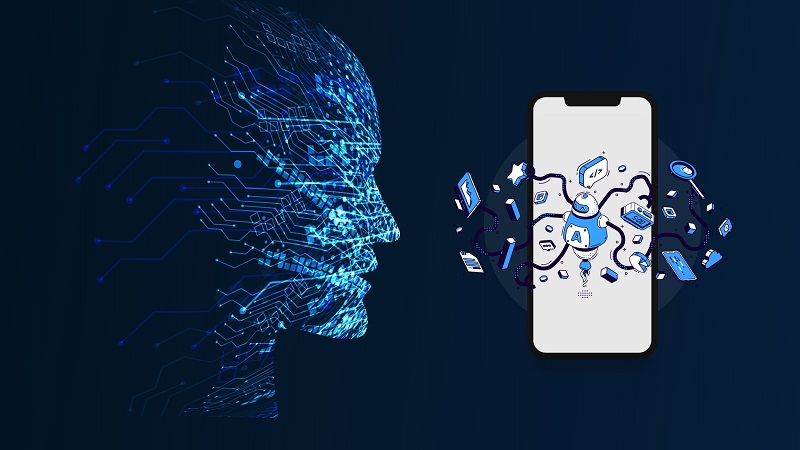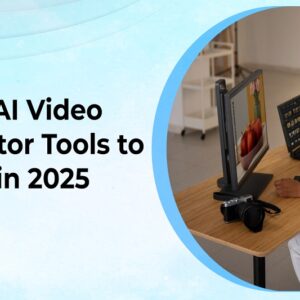
As the world becomes increasingly mobile-friendly, it’s no surprise that mobile apps are becoming increasingly complex. From user engagement to logistics, various applications AI and machine learning power.
This article will discuss how these technologies can be integrated into mobile apps to create more efficient and user-friendly experiences. Golang Web Development will also provide a few examples of successful applications that have incorporated these technologies. Are you ready to learn more? Let’s get started!

What are AI and machine learning?
AI and machine learning are two powerful technologies that can use to improve the efficiency of mobile apps. AI helps app developers create more user-friendly experiences by automating tasks that would otherwise take a lot of time, such as recognizing users’ faces or understanding natural language. Machine learning allows these applications to learn from users over time and get better at performing specific tasks, like predicting which items someone might want next.
This technology has been especially effective in facilitating the creation of voice-activated assistants (VASs), which can provide valuable insights into a user’s behaviour. For example, if you’re playing a game and you mention the word “fish,” your VAS might suggest you start fishing for food instead of looking for treasure.
Integrating AI and machine learning into mobile apps can have a lot of benefits. These technologies can make mobile app usage more efficient and enjoyable by automating tasks and giving users general insights about their behaviour. In addition to improving the user experience, integrating AI and machine learning into mobile apps can help businesses save time and money by eliminating tedious tasks or predicting customer needs. Are you interested in learning more? Let’s look at some of the most common applications of AI and machine learning.
Why Should You Integrate Machine Learning And Artificial Intelligence Into Your App?
You might want to implement machine learning and artificial intelligence into your mobile app for many reasons. Here are 5 of the most common benefits:
1. User Engagement
Machine learning can help your app achieve better engagement rates by automating tasks that would otherwise take a lot of time, such as recognizing users’ faces or understanding natural language. This allows you to focus on more important elements of the user experience, like content creation or customer service interactions.
2. Efficiency
AI and machine learning can be used to improve the efficiency of mobile apps in numerous ways. For example, they can help you identify which tasks should be automated and which should be performed by human beings. This saves time and money while ensuring that your app is responsive and user-friendly.
3. Predictive Analytics
By understanding the behaviour of users over time, machine learning can provide businesses with predictive analytics data that can help them make better decisions about future marketing campaigns or product development efforts. This information is often very valuable
– for example, knowing how long it takes customers to convert on a page or predicting customer trends based on past data.
4. Advanced Detection and Response
Machine learning can also be used to detect and respond to potential incidents or attacks in a quicker, more effective manner. For example, machine learning could be used to identify unusual activity on user devices or track the movements of specific individuals. This would enable you to take action quickly, for example, by blocking malicious websites or warning users about possible threats.
5. Operational Efficiency
AI and machine learning can also help companies to improve their operational efficiency. For example, they can use them to identify customer data patterns or performance indicators to make better decisions about marketing efforts or product development. This reduces the time needed to carry out these tasks – helping businesses reach their goals more quickly and efficiently.
6 Key Artificial Intelligence Uses in Mobile Apps
1. Automated App Creation
One can use Machine learning to create app designs automatically. Businesses no longer have to rely on human designers – meaning that one can reduce app development costs significantly.
2. Automatic User Retention and Engagement
Similarly, machine learning algorithms can help you understand user behaviour and motivations to improve app retention rates or engagement levels. This helps you keep users hooked on your service long after they’ve initially downloaded it, increasing the chances of them becoming loyal customers.
3. Automatic App Retention and Monetization
Machine learning will use to identify strategies for retaining users and maximizing app monetization use, for example, by customizing app content or design to match user interests or preferences. This helps you generate more revenue from an app – without requiring extra user input.
4. Personalized Recommendations
Machine learning can also generate personalized recommendations for future users of an existing app. This helps you reel in new customers who may have missed your initial campaign – giving you a bigger market share overall.
5. Predictive Maintenance
Machine learning algorithms can use to identify patterns and trends in user data – so that maintenance tasks (such as updates, tweaks, and new features) can be planned ahead of time, ensuring your app remains running smoothly.
6. Automated Tracking of User Behavior
Finally, machine learning algorithms can also be used to track user behaviour within an app. This allows you to see how users react to specific changes or updates – helping you make better decisions about future marketing campaigns or product development.
Conclusion:
Today, we can see that AI is playing an extremely important role in making our lives and work easier. From mobile apps to managing customer service calls and scheduling meetings, AI is transforming how we operate daily. The only question is how the industry will adopt these new technologies.
In some cases, it’s already happening gradually. Some companies have started using machine learning to increase customer satisfaction, while others are developing chatbots powered by artificial intelligence to guide customers more efficiently. In most instances, though, adoption has been slow because of public trust issues surrounding such sophisticated technology. Topics like privacy also remain a big concern when it comes down to introducing this new technology into everyday life!
Author Profile
- I am the owner of the blog readree.com. My love for technology began at a young age, and I have been exploring every nook and cranny of it for the past eight years. In that time, I have learned an immense amount about the internet world, technology, Smartphones, Computers, Funny Tricks, and how to use the internet to solve common problems faced by people in their day-to-day lives. Through this blog, I aim to share all that I have learned with my readers so that they can benefit from it too. Connect with me : Sabinbaniya2002@gmail.com
Latest entries
 BlogJuly 15, 2025Manufacturing Success: Leveraging SMS Messaging in Salesforce for Order & Delivery Updates
BlogJuly 15, 2025Manufacturing Success: Leveraging SMS Messaging in Salesforce for Order & Delivery Updates  EducationJuly 14, 2025Here’s What Can Be Done When You Hire Someone to Take My Online Exam
EducationJuly 14, 2025Here’s What Can Be Done When You Hire Someone to Take My Online Exam Digital MarketingJuly 13, 2025The Future of .NET Security: Key Trends to Watch in 2025
Digital MarketingJuly 13, 2025The Future of .NET Security: Key Trends to Watch in 2025 BlogJuly 12, 2025Top 10 AI Video Generator Tools to Watch in 2025
BlogJuly 12, 2025Top 10 AI Video Generator Tools to Watch in 2025